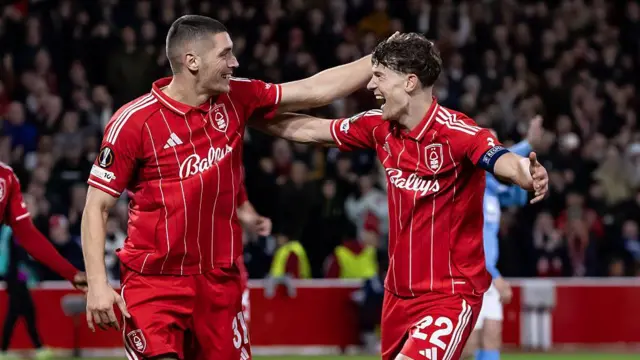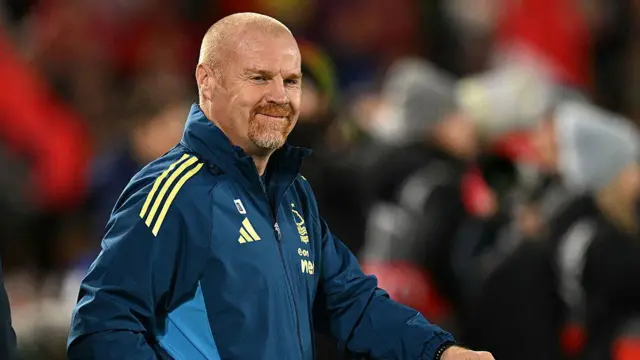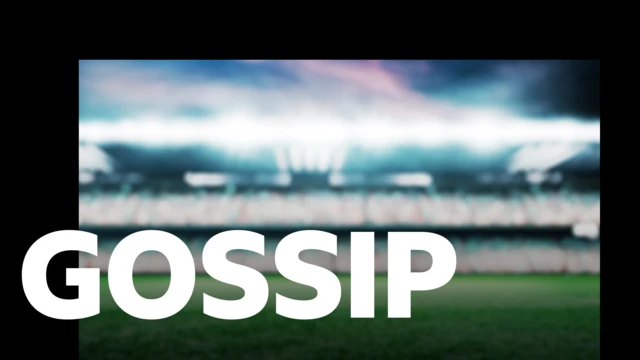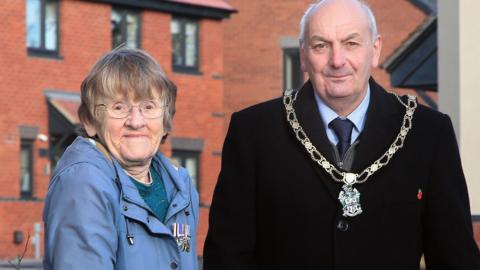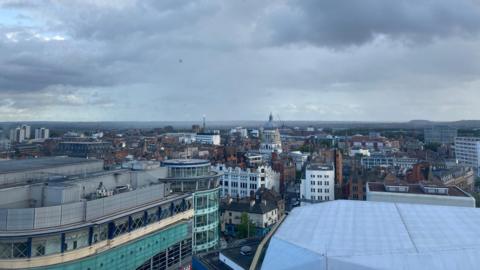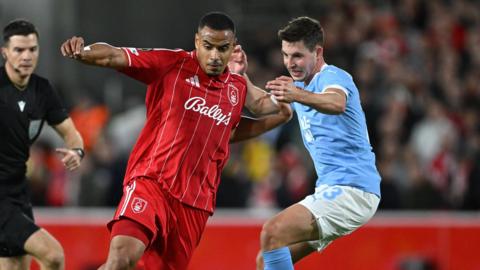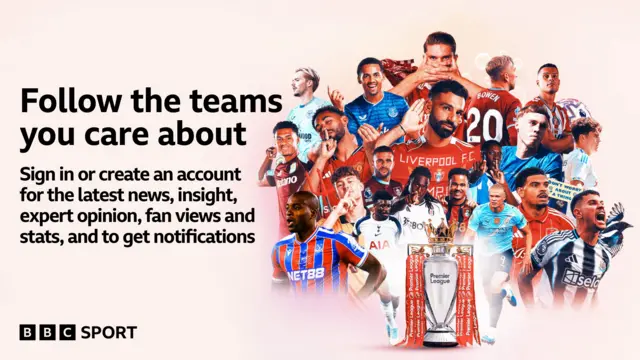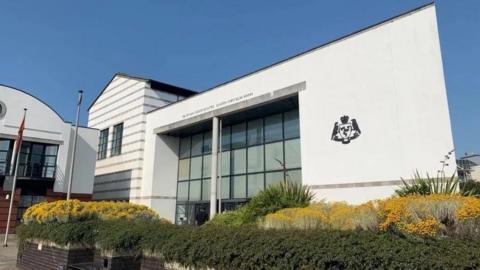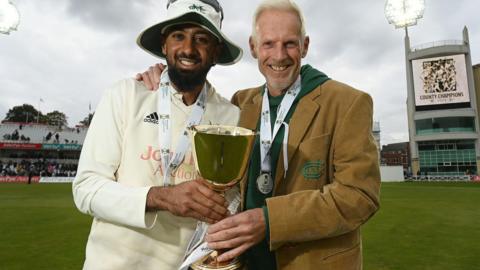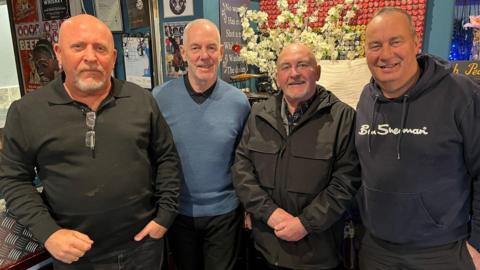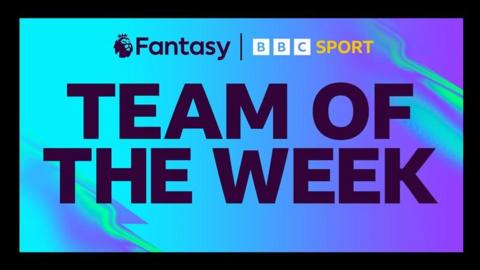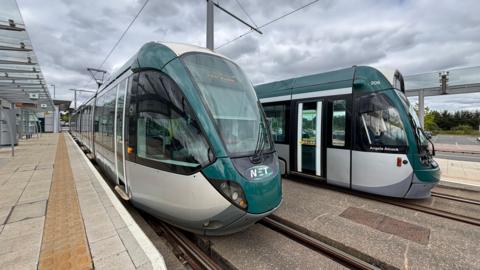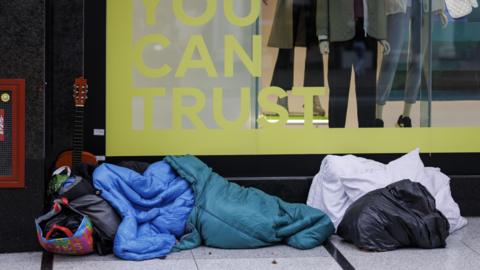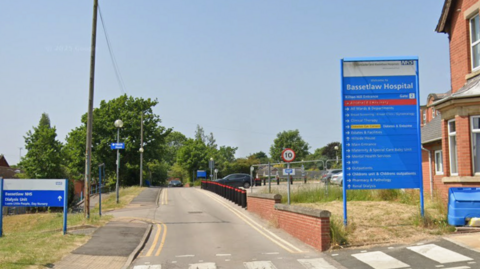'Dream come true' - Sinclair makes pro debutpublished at 10:57 GMT 28 November
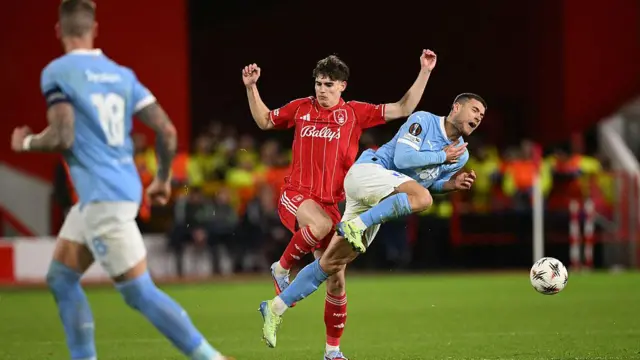 Image source, Getty Images
Image source, Getty ImagesNottingham Forest youngster Jimmy Sinclair said it was a "dream come true" as he made his professional debut against Malmo.
Sinclair, 19, came on in the 84th minute to replace James McAtee in their 3-0 win over the Swedish club.
Speaking to BBC Radio Nottingham on the experience, Sinclair said: "It's an incredible night, personally a dream come true.
"I think for the fans and the club, it was an incredible night. It was a really good team performance and many more to come.
"It was another dream come true to just be on a bench for a game like this. To get the call and be involved was a special moment."
Listen to his full interview here



